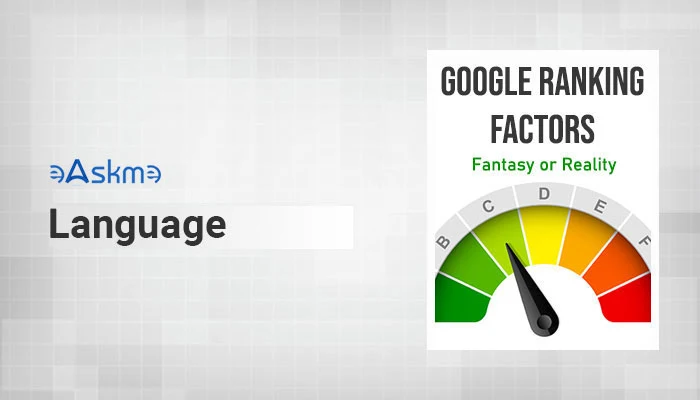Whether you're looking to learn German for business or pleasure, there are plenty of ways to achieve your goals. The key is to find a learning style that suits your personality and abilities.
One of the best ways to learn a new language is through immersive listening.
This is the fastest way to improve your speech.
 |
| How to Learn the German Language?: eAskme |
1. Reading:
If you want to learn the German language, there are many ways that you can go about it. You can do it through a class, with private tutors, or online.
However, one of the best ways to learn the German language is through reading.
It's been shown that reading can have several benefits that will help you improve your speaking and other skills.
It is a great way to improve your cognitive abilities and stimulate memory.
Secondly, it helps to build up your vocabulary as well.
And thirdly, it can help to reduce the levels of beta-amyloid in your brain, which is connected to Alzheimer's disease.
It's also a great way to familiarize yourself with a new language's grammar structures and learn new words. In addition, you can use this time to practice your pronunciation.
You should try reading as much as possible in German, though it is important to pace yourself.
This will prevent you from getting frustrated and feeling like you're not progressing. If you're a beginner, start by trying to read easy books.
Then, move up to more challenging books as you become familiar with the language, and your skills grow.
This way, you'll be able to read more German without getting bored or frustrated and will feel like you're progressing in the language.
You might even be surprised by how fast you can progress!
You can also read about different things in German to help you understand the culture and social mores of the country.
For instance, if you're a history buff, you could read about Germany's past.
Or, if you're interested in literature, there are plenty of German novels to choose from.
2. Writing:
The best way to learn the German language is to find the right approach that suits your personality and goals.
Learning methods differ from person to person, so it's important to try a variety of them until you find the ones that work best for you.
If you're a visual learner, try watching movies and TV shows in the German language to get the vocabulary and grammar you need to talk confidently.
It's a great way to keep your motivation high while making new vocabulary and language connections.
You can also listen to podcasts that are made for language learners.
This will help you understand the language better and improve your fluency.
It's also a good idea to read about the grammar rules of the German language. This will help you understand the language and its rules much faster.
Lastly, reading German literature can help you to develop your writing skills in the language.
This will help you to become a more natural writer in the German language and make it easier for you to communicate in the language.
When learning a new language, it's very common for students to make mistakes. This can be a little scary, but remember that most native speakers also make mistakes while learning a new language.
If you're a beginner in German, it's a good idea to speak with a native speaker to gain their feedback and build your confidence.
Whether they're your friends, family, or even on social media, finding someone who speaks the German language as their native language can be an excellent way to get started.
3. Listening:
The best way to learn German is by listening to native speakers. This will help you develop your speaking skills, improve your pronunciation, and increase your vocabulary.
If you have the time, listening to German podcasts that focus on grammar and language rules is also a good idea.
Whether you are learning German for school, work, or fun, listening is vital to the language.
Without it, communication can break down, and you may feel frustrated or irritated when someone misunderstands your message.
You can practice your listening skills by using games that encourage active listening, such as 'Would you rather?'
where you have to explain why you would choose one option over the other.
You can also use discriminative listening, which focuses on nonverbal cues to help you understand what others say.
If you're struggling with a particular piece of a German movie or TV show, try to repeat what you've heard several times.
This will help you to improve your understanding of the words being used, and you'll be able to pick up on any errors you have.
These apps are designed to be easy to use while still allowing you to improve your vocabulary and grammar.
They also have 30-minute lessons that you can take on the go. While these apps can be expensive, they are worth the investment for any serious language learner.
They offer various lessons and exercises to make learning the language more enjoyable.
There are many ways to learn a new language, but listening is probably the most efficient way.
This is because you can listen to a podcast or audio course with headphones while doing other things around the house, such as cooking.
This can help you stay focused on your studies and give you a better chance of remembering the words you've learned as you go about your day.
4. Speaking:
If you're trying to learn a language, getting plenty of speaking practice is important.
You'll find it easier to remember words and phrases when you can use them spontaneously and in context.
It's also a great way to get feedback from your German teacher so that you can adjust your learning strategies accordingly.
However, speaking can be difficult to develop, and it's often not covered in classroom settings.
Conclusion:
There are several ways to improve your speaking skills, but one of the most effective is to immerse yourself in the language through media.
Whether listening to German podcasts, watching movies in the language, or even reading German books, it's an excellent way to increase your confidence and start talking fluently.
Fortunately, many resources are available to help you learn the German language.
It's important to choose the right ones for you to enjoy your learning experience and make progress quickly.
Still have any question, do share via comments.
Share it with your friends and family.
Don't forget to join the eAskme newsletter to stay tuned with us.
Other handpicked guides for you;
















